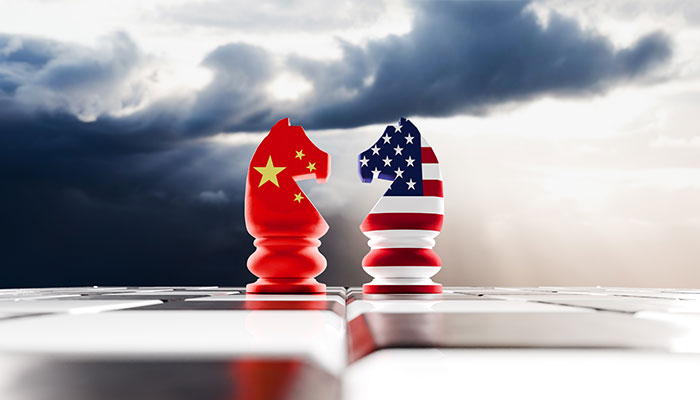As the trade war between the US and China heats up (and periodically cools, pauses and re-heats), businesses worldwide are grappling with the fallout.

According to Dr Monica Ren, a Lecturer in the Department of Management at Macquarie Business School, Small to Medium Enterprises (SMEs) in Australia should now be including a geopolitical dimension in their business planning.
"An expanded trade war will directly impact many Australian SMEs," says Ren. "Tariffs, particularly those imposed by the US and China, can mean massive additional costs."
In Australia, an SME is defined as having between five and 200 employees. Of the 2.6 million businesses in Australia, 98 per cent are SMEs.
In 2024, Dr Ren and her colleagues studied the early stages of the US-China trade war that began in 2018.
That research explored various strategic options such as 'fencing' and 'balancing' – concepts designed to more sharply focus operations on either America or China.
"People forget that this trade war began in 2018 with Trump 1.0," says Dr Ren.
"Biden's policies focused more on protecting high-tech industries, and the cumulative effect has been the escalation of a tech war, disruptions to supply chains and deglobalisation. Under Trump 2.0, we are witnessing the deconstruction and reconstruction of the world trade order.
"SMEs here in Australia that trade internationally could be affected by these supply disruptions, and this will likely be magnified for those who manufacture their products outside Australia. Some may have to decide if manufacturing in China is still viable."
Small to Medium Enterprises might look towards Singapore or Taiwan or Croatia.
An escalation of the trade war on March 24 saw China strengthen its anti-foreign sanctions law, meaning it can freeze cash, stock and Intellectual Property (IP) rights. Dr Ren says this could have major implications for SMEs, especially in the high-tech sector.
"Large tech companies and luxury fashion brands go to extraordinary lengths to protect their inventions, designs, logos and brand identities in China," says Dr Ren.
"This is much more difficult for SMEs, and they should be aware that risks to their IP are associated with every strategic decision.
"SMEs need to take a holistic view. Owners and executives should include a geopolitical dimension in their business evaluation model. They should consider their position in the global supply chain and adjust their strategies away from a 'cost efficiency only' approach.
"Each SME has different strengths, and each should consider the trade war implications at national, industry and company levels. At the very least, this process of re-evaluation improves resilience."
Two strategic options for SME resilience
A protracted trade war may mean businesses need to choose either a 'fencing' or a 'balancing' strategy, according to Dr Ren's research.
A 'fencing strategy' means picking a side - in this case, either the US or China - based on the company's primary location for sourcing or exporting.
"A policy of fencing against China means excluding China as an export market," she says. "One high-tech exporting company we studied pursued this strategy because of IP concerns.
"Another option is a US- or Western-centric market fencing strategy. This strategy doesn't exclude China. Rather, it focuses on Western markets. SMEs choose this strategy for many reasons, including common language and IP protection.
"Alternatively, an Australian exporter may choose China-centric fencing. This could make sense for companies that manufacture in China and export to the US."
Balancing strategies are deliberate choices not to rely on any one partner, Dr Ren says.
"Balancing by reducing dependence on China means finding a more diverse range of suppliers and customers, thus reducing - but not terminating - reliance on China. The potential downside is exposure to a less profitable market, such as India, or a more competitive market, such as Japan.
"Global opportunity balancing involves not focusing on either the US or China. Instead, SMEs might look towards Saudi Arabia, Singapore, Taiwan or Croatia."

Ahead of the game: Dr Monica Ren, pictured, researched the early stages of the US-China trade war which began in 2018.
Dr Ren says SMEs aspiring to become global leaders should note how multinational enterprises handle geopolitical risk.
"They don't avoid risk," says Dr Ren. "They build strong internal capabilities to manage it. Their scale allows them to spread costs across the supply chain and negotiate with suppliers to share the burden. Our study found that for multinational enterprises, global risk isn't a deterrent; it's a constant of doing business. Adopting this mindset early can help position Australian SMEs for long-term global success."
Dr Monica Ren is a Lecturer in the Department of Management at the Macquarie Business School.






